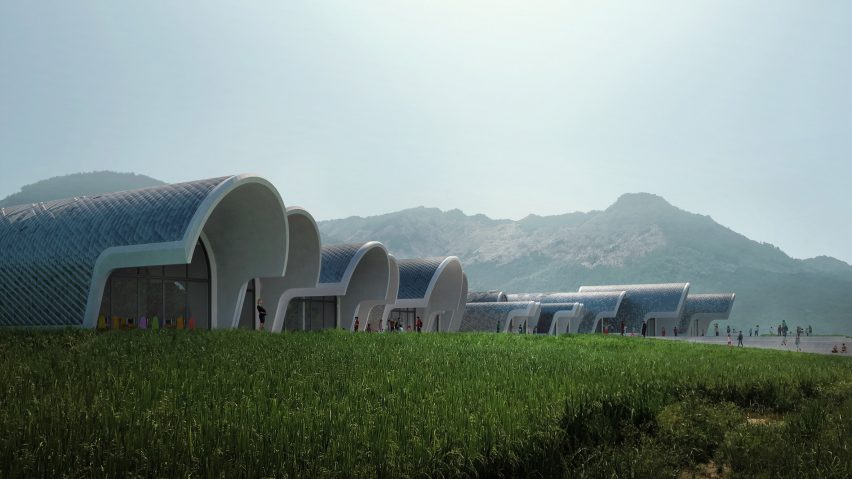
Zaha Hadid Architects will use robots to build barrel-vaulted school in rural China
Zaha Hadid Architects has unveiled plans for a primary school in China's mountainous Jiangxi province, which will feature a series of barrel-vaulted classrooms built in part by robots.
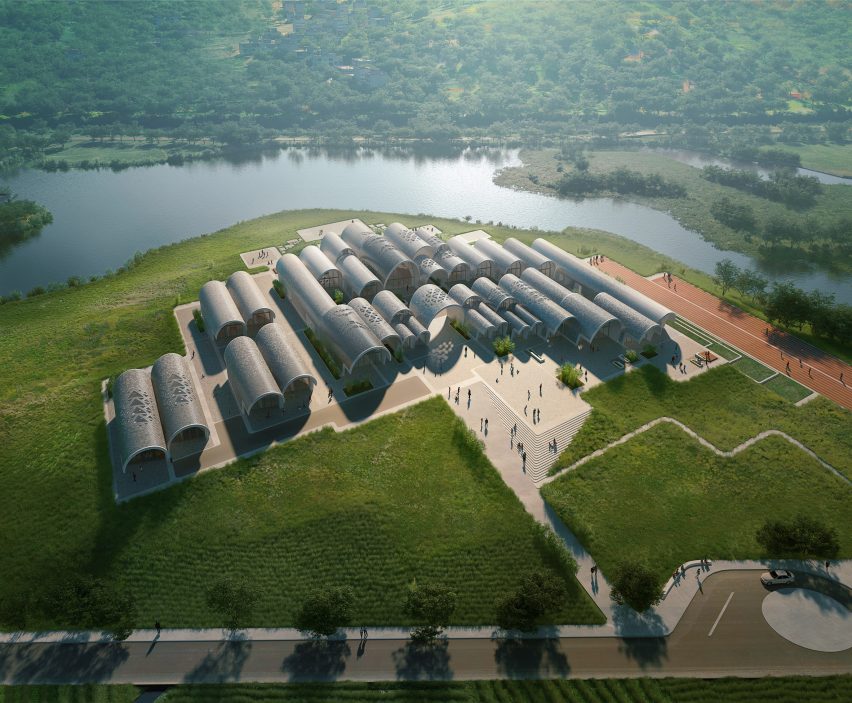
Lushan Primary School will be situated 160 kilometres north-west of the province's capital, Nanchang, and perched on a small peninsula. It will be able to accommodate up to 120 children, serving the 12 surrounding villages that have a total population of just 1,800.
Following a campus-style layout, the school will be split up into a series of individually housed classrooms, dormitories and utility buildings that will be orientated to receive optimal natural light.
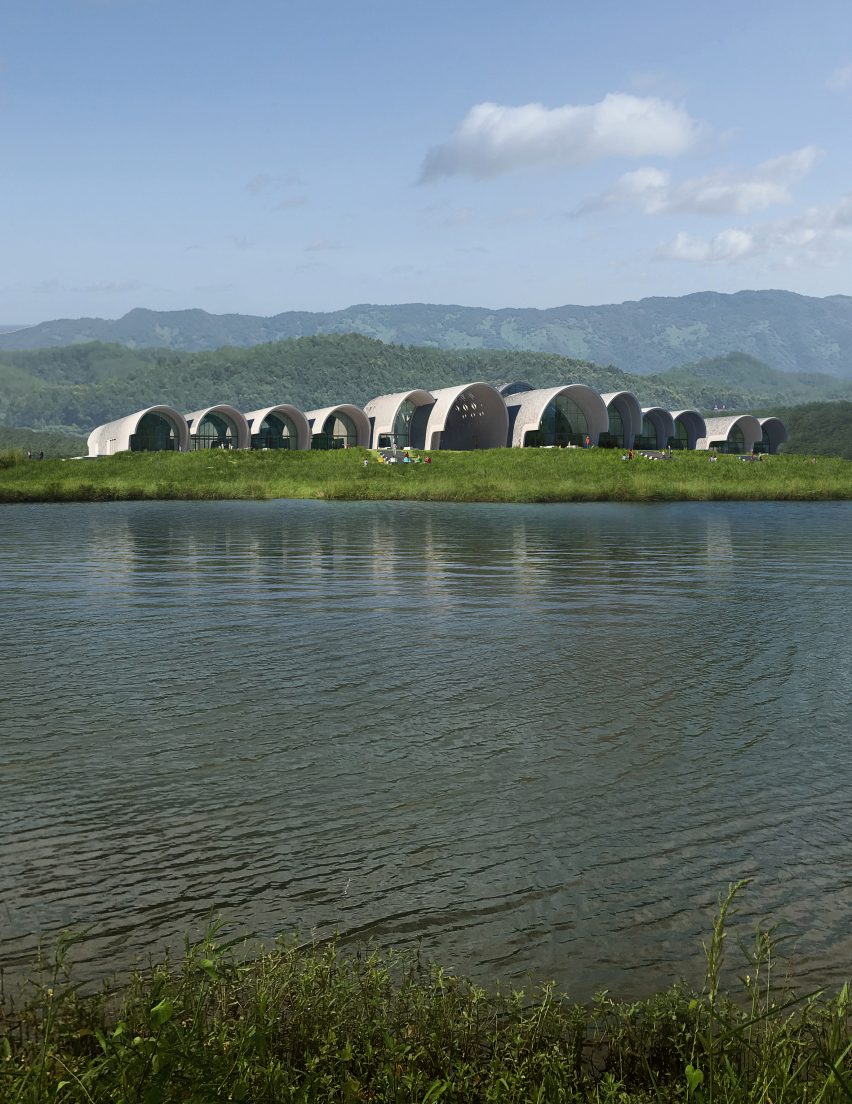
Each of the arched structures will have an overhanging roof to shade large windows from the sun.
The grounds – which will play host to a variety of outdoor teaching spaces and sports facilities – can also act as a water catchment area in the event of flooding. A long central courtyard will serve as the main play area.
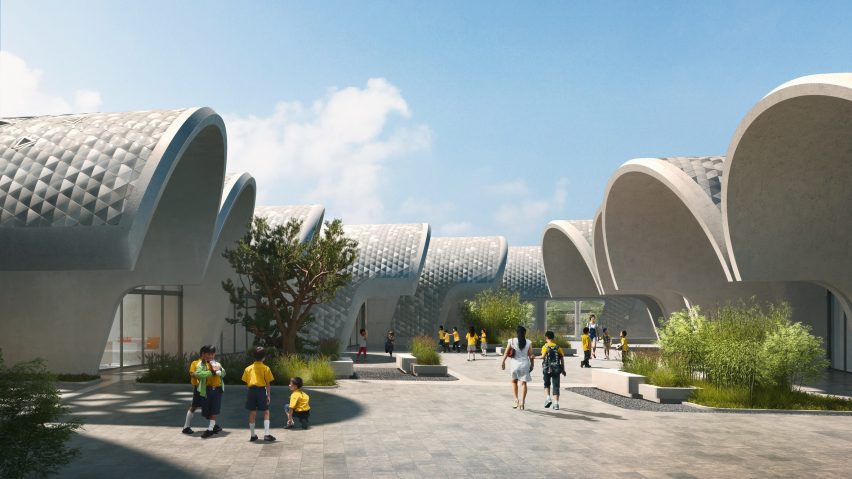
Externally the buildings will be finished with triangular ceramic tiles, intended as a visual nod to Jiangxi's past.
"The region's long history of producing the highest quality ceramics dates from the Ming Dynasty," Zaha Hadid Architects explained in a statement.
"These traditions are continued in the school's ceramic external finishes laid in a gradient of tones that express the differing programmes within."
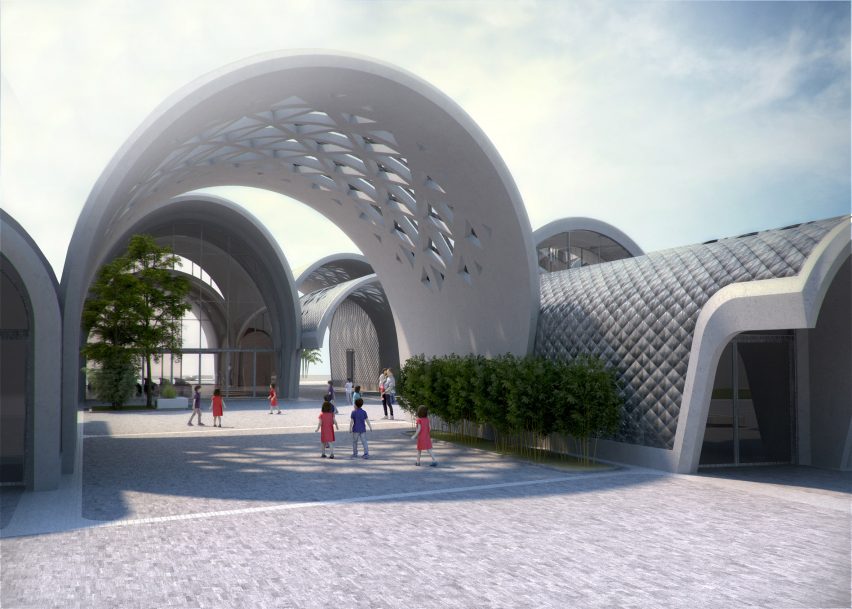
The school will be built completely in situ using local building materials and techniques to minimise the construction period, and reduce the number of elements needing to be delivered to the project's remote location.
Foam moulds for the barrel vaults will also be crafted by on-site industrial robots employing a hot-wire cutting technique.
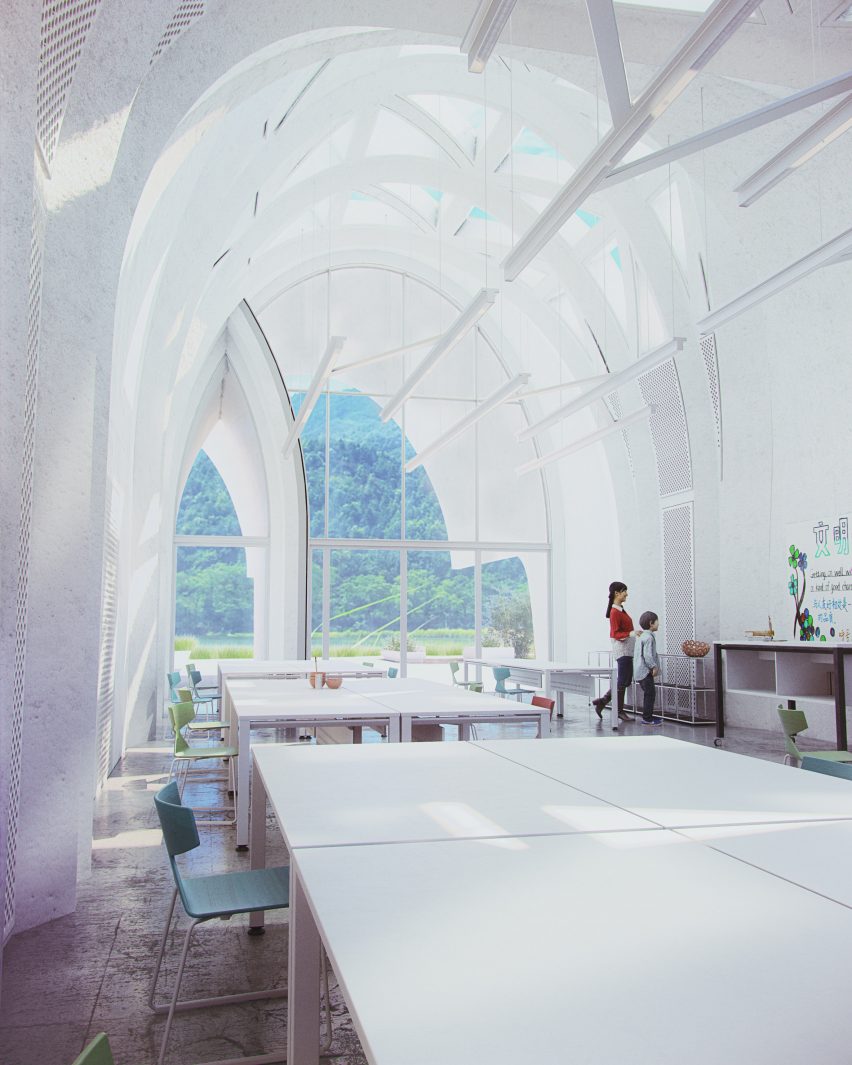
Zaha Hadid Architects has previously designed another school – the Evelyn Grace Academy school in London, which was awarded the RIBA Stirling prize for greatest contribution to British architecture of 2010.
Visualisations are by VA Render.